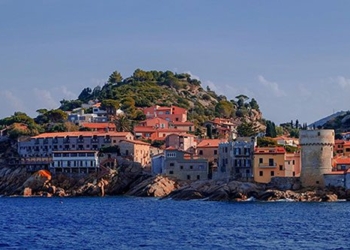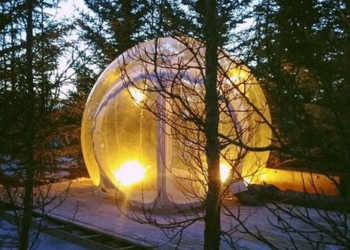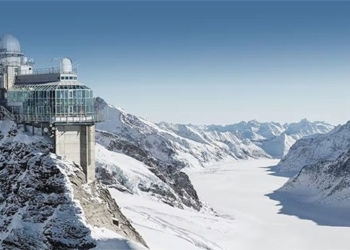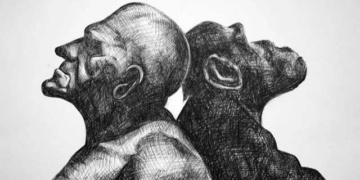The scenery and fresh air, along with the unhurried pace of life on the island, gives visitors the feeling that time has come to a standstill.
At first glance, Hydra appears similar to its neighboring islands in the Aegean Sea, located between Greece and Turkey. The island features whitewashed streets, an atmosphere filled with the scent of jasmine, and stunning views of the sparkling turquoise waters.
What sets Hydra apart is its mode of transportation. The locals have completely eliminated the noise of car horns, replacing it with the rhythmic sounds of horse hooves.
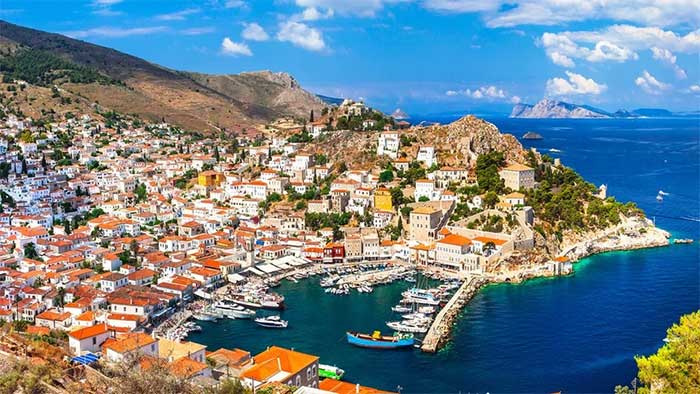
Hydra, a beautiful island in Greece, has banned motor vehicles.
Here, people “hate” cars. The ban on motor vehicles (except for fire engines, garbage trucks, and ambulances) is stipulated in local law. The approximately 2,500 residents of this small Greek island rely on donkeys, mules, and horses for transportation.
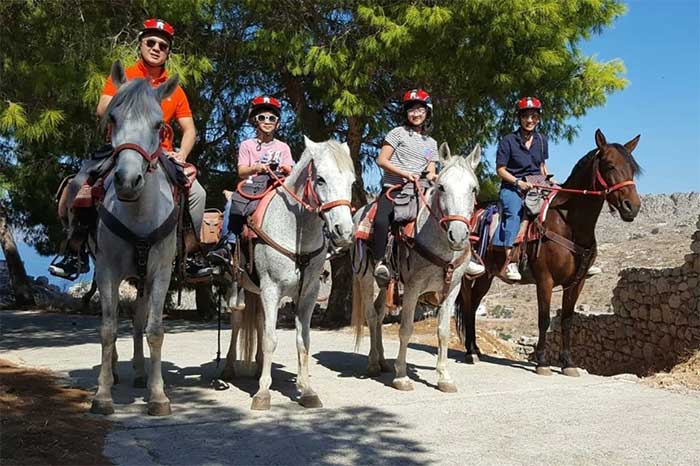
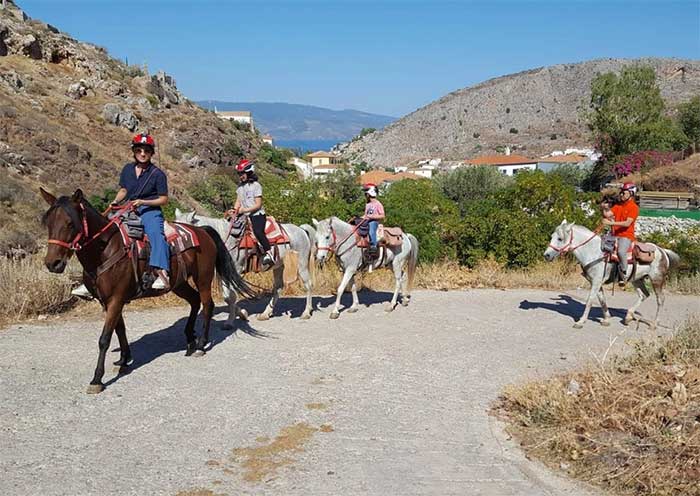
Horses are the mode of transportation for the people of Hydra.
Upon disembarking from the ferry at Hydra’s port, the center of the island, visitors will encounter graceful horses leisurely traversing the cobblestone paths, embodying the island’s relaxed pace of life.
As you wander through Hydra’s charming streets, you will easily spot locals riding their “four-legged friends”, enjoying an extraordinary sense of leisure.
From Kaminia, a tranquil village on the southern coast adorned with traditional stone houses, to Mandraki on the western coast of the island, known for its pristine waters and relaxed atmosphere.
Harriet Jarman, a resident of the island and owner of the mountain riding company Harriet’s Hydra Horses, states: “Hydra is the island that truly takes you back in time. All transportation on this island is done by horse or donkey. Without cars, life is more peaceful.”
Indeed, the scenery and fresh air, along with the unhurried pace of life on the island, gives visitors the feeling that time has come to a standstill.
A Unique Connection
Among the more than 2,500 residents living on Hydra, Harriet Jarman is one of the remarkable individuals. She was not born here but has chosen to stay for a long, long time…

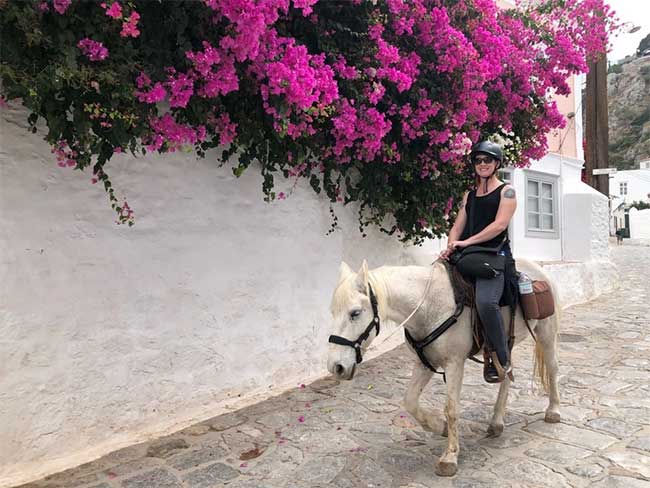
Harriet Jarman said: “Hydra is the island that can truly take you back in time.”
Twenty-four years ago, Harriet was brought to Hydra by her mother during a holiday. This visit led her to a life-changing decision. Harriet permanently moved to Hydra.
Over ten years ago, when Greece faced an economic crisis, Jarman struggled with the idea of selling Chloe, her beloved horse.
Determined to keep her cherished companion, she founded a company specializing in horseback riding services through the forests. The business not only supported Chloe but also allowed her to share her love for the island with other tourists.
She recalls: “I was tired of people telling me to sell Chloe because keeping a horse is very expensive. I thought, okay, I will show everyone why I want to stay on the island.”
Harriet’s company now has a team of 12 horses, offering guided tours along the island’s trails led by experienced riders. These journeys take visitors past ancient monasteries and picturesque beaches of Hydra.
A Legacy Etched in Hoofprints
Using traditional horse-drawn transport, known as “caiques,” is how the people of Hydra honor their rich heritage and commitment to sustainable living.
In the 18th and 19th centuries, Hydra thrived as a bustling maritime center. Moving into the 20th century, motorized transportation began to appear throughout Greece, but the narrow and steep roads of the island, along with its rocky terrain, made cars impractical. Consequently, the residents continued to rely on horse transportation.
Over time, this reliance on hoofed animals deeply ingrained itself into the culture and lifestyle of the people of Hydra.
Donkeys and mules have become an indispensable part of the island’s identity, used for transporting goods, building materials, and even people. Remarkably, this tradition continues to this day.
Harriet Jarman states: “These four-legged friends are our cars and our hands, carrying everything from building materials, furniture to luggage and shopping.”
An Artistic Paradise
The absence of cars has undoubtedly contributed to the island’s peaceful atmosphere, attracting creatives from around the world, including the famous Italian actress Sophia Loren, who fell in love with Hydra while filming “Boy on a Dolphin” in 1957.
“Hydra offers wonderful colors, beautiful light, and an atmosphere that has inspired many,” says jewelry designer and Hydra native, Elena Votsi.
Known for her works that blend traditional craftsmanship with modern aesthetics, Votsi draws inspiration from Greek heritage as well as nature and geometry.
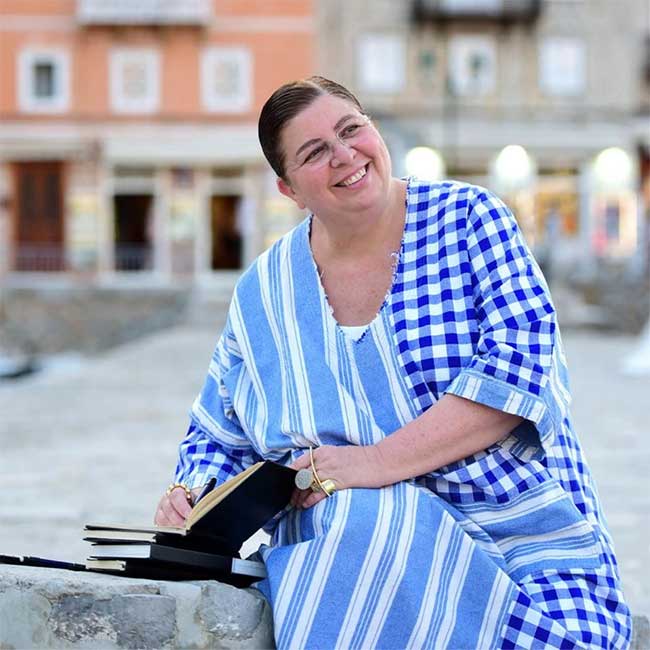
Jewelry designer and Hydra native, Elena Votsi.
Although born in Athens, Votsi states that she spent summers and holidays in Hydra visiting her father. She mentions that the absence of cars makes it a magical working environment that has inspired her designs since the beginning of her career.
“The sun, the rocks, and the shapes of the waves have inspired me. The island’s natural beauty and uniqueness have significantly influenced my creative process,” Votsi explains.
In 2003, she was invited to participate in the design competition for the Olympic Summer Games medal for the International Olympic Committee.
Upon receiving the invitation, Votsi traveled to Hydra. The island, with its indescribable charm, served as her muse, sparking a creative journey that led Votsi to win the competition.
Many famous artists have vacationed or purchased homes in Hydra. The allure of the island has attracted a slew of painters such as Brice Marden, Alexis Veroucas, Panagiotis Tetsis, Nikos Hadjikyriakos-Ghikas, and John Craxton, as well as writer Henry Miller, who came to create. They found inspiration amidst the island’s tranquil scenery.
Canadian singer-songwriter Leonard Cohen discovered Hydra in the 1960s and made it his home for several years. His time on Hydra is immortalized in the song “Bird on the Wire.”
“Hydra is a paradise. It’s a wonderful place to work, and I feel fortunate that I could come here as an artist, as so many others have done before and will continue to do,” Votsi concludes.








































